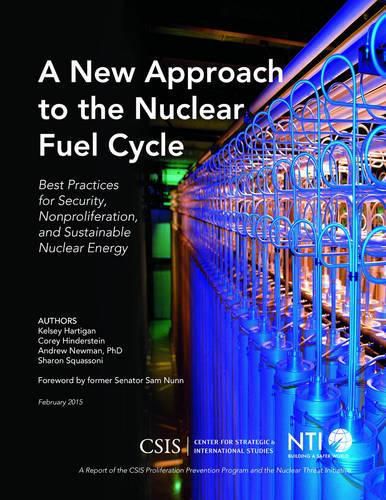Readings Newsletter
Become a Readings Member to make your shopping experience even easier.
Sign in or sign up for free!
You’re not far away from qualifying for FREE standard shipping within Australia
You’ve qualified for FREE standard shipping within Australia
The cart is loading…






The Nuclear Threat Initiative and the Center for Strategic and International Studies joined to launch the New Approaches to the Fuel Cycle project. This project sought to build consensus on common goals, address practical challenges, and engage a spectrum of actors that influence policymaking regarding the nuclear fuel cycle. The project also tackled one of the toughest issues-spent nuclear fuel and high level waste-to see if solutions there might offer incentives to states on the front end of the nuclear fuel cycle and address the inherent inertia and concerns about additional burdens and restrictions that have stalled past efforts to improve the robustness of the nonproliferation regime. This report presents the group’s conclusions that a best-practices approach to the nuclear fuel cycle can achieve these objectives and offer a path to a more secure and sustainable nuclear landscape.
$9.00 standard shipping within Australia
FREE standard shipping within Australia for orders over $100.00
Express & International shipping calculated at checkout
The Nuclear Threat Initiative and the Center for Strategic and International Studies joined to launch the New Approaches to the Fuel Cycle project. This project sought to build consensus on common goals, address practical challenges, and engage a spectrum of actors that influence policymaking regarding the nuclear fuel cycle. The project also tackled one of the toughest issues-spent nuclear fuel and high level waste-to see if solutions there might offer incentives to states on the front end of the nuclear fuel cycle and address the inherent inertia and concerns about additional burdens and restrictions that have stalled past efforts to improve the robustness of the nonproliferation regime. This report presents the group’s conclusions that a best-practices approach to the nuclear fuel cycle can achieve these objectives and offer a path to a more secure and sustainable nuclear landscape.